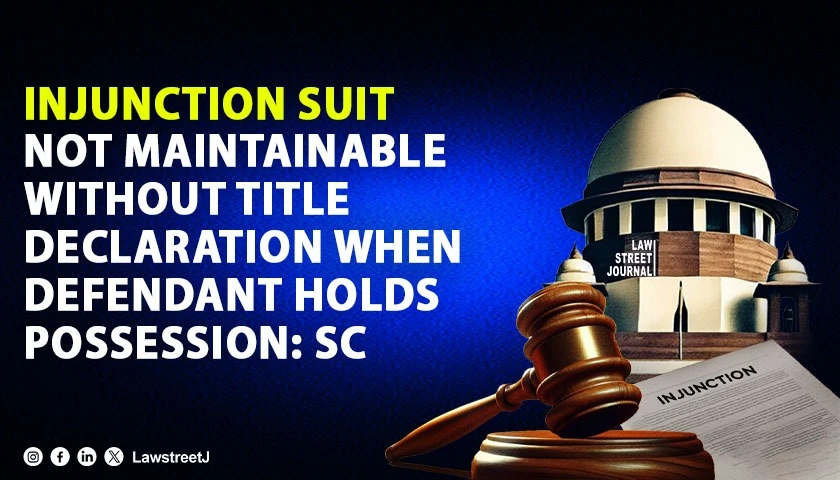New Delhi: The Supreme Court of India has delivered an important judgment addressing procedural requirements in property disputes, ruling that injunction suits must be accompanied by a proper declaration of title when possession lies with the defendant and ownership is contested.
The Bench comprising Justices Ahsanuddin Amanullah and K. Vinod Chandran dealt with a Civil Appeal arising from Special Leave Petition (Civil) No. 18943 of 2024, filed by the legal heirs of the original defendant against D. Rajammal.
The dispute originated from litigation filed by Rajammal against her brother, Munuswamy, seeking dual injunctions — one preventing alienation or encumbrance of the disputed land, and another restraining interference with her claimed rights over the property. Her claim was based on a testamentary disposition dated September 30, 1985, through which their father, Rangaswamy Naidu, allegedly bequeathed equal shares to her and another sibling, Govindarajan.
The Court examined the factual matrix, noting, “The plaintiff’s contention itself was that the defendant was continuing in the property as a tenant, while the defendant claimed that he came into possession as a co-owner and later there was an arrangement.”
Addressing the trial court’s initial decree granting injunctions after finding the testamentary document valid, the Bench observed that the appellate court had reversed this decision on the ground that the bequest concerned ancestral property over which the testator lacked dispositional authority. However, the High Court, in second appeal, restored the trial court’s verdict after determining the property to be the absolute holding of the testator.
On the crucial issue of possession, the Supreme Court highlighted significant admissions, stating, “More pertinent is the fact that the plaintiff, in her evidence, clearly stated that the property covered by the Will is in the possession of Munuswamy and Govindarajan, her brothers.”
The Court emphasized the procedural deficiencies in the litigation, observing, “While asserting a Will and title on its strength, there should have been a declaration of title sought, especially when the contention of the defendant was that he came into the property as a co-owner and then occupied it with absolute rights, making valuable improvements.”
In a significant pronouncement on the interplay between title, possession, and injunctive relief, the Bench held, “Even if the title is established, there should have been a recovery of possession sought by the plaintiff. The ill-drafted plaint and the clear admissions made in the witness box ought to have restricted the trial court and the High Court from granting an injunction against interference with peaceful enjoyment of the property, especially when possession was admitted to be with the defendant.”
The Court distinguished between the two forms of injunctive relief sought, ruling, “The injunction against alienation is perfectly in order since the defendant too has not sought a declaration of title.”
Recognizing the resulting impasse created by the litigation, the Supreme Court granted liberty to both parties to institute fresh proceedings within three months, clarifying that any such proceedings would be considered independently without being bound by findings in the current litigation. The Court directed, “However, we make it clear that no alienation shall be made by either party, nor shall the subject property be encumbered.”
The Bench concluded, “In the above circumstances, we cannot but find that the ‘Will’ is proved, but the right of the testator to bequeath the property is still under a cloud.”
Accordingly, the appeal was disposed of.
Case Title: S. Santhana Lakshmi & Ors. v. D. Rajammal













